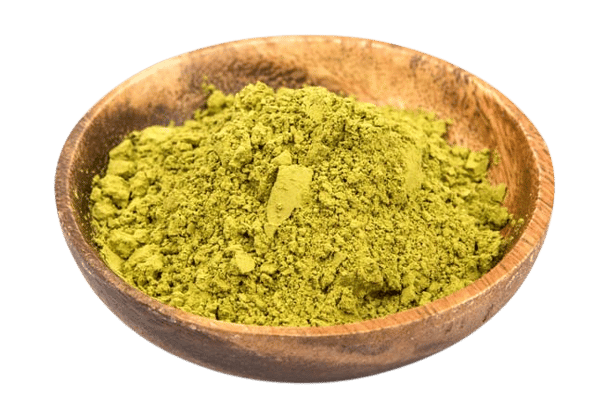How to Start a Kratom Store: A Step-By-Step Guide
Here’s a rough step-by-step guide to get your kratom business running and hopefully pulling in some profit.
1. Identify Your Audience
Identifying your audience helps you determine what sort of products you will buy in the first place.
You’re at an advantage if you can identify a gap in the kratom marketplace, a niche you can help fill. If you can market specifically to people in that niche, they’ll be a lot more interested in checking out your company.

Remember, however, that the market is massive, so finding a new niche may take some doing. If you’re having trouble finding one, decide who you hope to sell to and then curate your website/products/philosophy according to that.
2. Choose a Quality Source
Next, decide whether you will be importing raw kratom powder or purchasing bulk products from a wholesaler in the United States. The latter option is certainly a lot less hassle, but it limits your options in terms of variety.
You also have no control over product quality, which can become a hassle if your customers complain of inconsistency. If you’re going to import, you first need to find a way to make sure your product makes it into the country. Whether this means hiring a customs broker or using a third-party site like Bikhuk (although their American imports are temporarily unavailable) is up to you.

Once you have a source, you’ll need the proper testing outlets. Third-party lab tests are a huge boon for an upstart business, but unfortunately, they’re fairly expensive. If you’re a regular kratom user yourself, you could potentially scrape by sampling the product yourself.
3. Decide On the Company Structure
There are different ways to structure your company. We go into greater detail below, but here’s a quick look at things to consider.
- Sol — As discussed earlier, you can try running the whole business yourself, but this can be very challenging and time-consuming.
- A company with employees — Generally, most people won’t need to start with employees unless they’re starting a business with huge capital and can afford to start on a large scale.
- With a partner or distributor — Some kratom vendors allow upstarts to strike deals with them as either partners or distributors. If you start a franchise for another company, you might sacrifice using your brand name at first, but you’ll get tons of first-hand experience in exchange.

If you strike up a distribution deal, you may get the right to sell a company’s product in a certain area. This would mean you can keep your brand name and branch out.
You will also have to decide between an online or physical business. An offline business will require renting or buying a physical location. In contrast, an online business requires acquiring a domain name and familiarizing yourself with either e-commerce software or website design.
4. Make Sure You’re Up to Par On the Legal Status
The legal status of kratom will give you some hassle no matter what. First, what are the local laws? Second, what does the FDA allow for marketing and labeling?
- Stay up to date on the state and federal laws regarding the sale and possession of the plant.
- Since the FDA hasn’t approved the plant, there are very specific rules for what you can and can’t say when selling kratom online. However, you won’t get in trouble for selling it as a raw botanical product.
Most vendors recommend including disclosures suggesting that their kratom isn’t intended for treating any ailment and that it’s unapproved. The biggest mistake is to make specific health claims about what conditions kratom treats.
Vague terminology is often acceptable (e.g., saying “kratom cures inflammation” is a Hard No, but saying “athletes have reported using kratom to reduce swelling” is usually okay.)

Unfortunately, many of the letters that the FDA has been shipping out to kratom vendors over the last few years point to “illegal and unfounded claims” made in this exact format. Be aware that this can still cause problems if the FDA decides to make it an issue.
Vendors have gone to court over kratom disputes numerous times. Kratom Divine, for example, faced allegations in court because a woman found a bag of kratom near her husband when he died. She insisted that the company lists “death” as a possible side effect of kratom and tried to get them to shut down entirely.
5. Branding & Marketing
Now you need to make sure you have a brand that can stand out and stick in people’s memories. You’ve already identified your target audience; now, make a brand name related to that.
Most of this is already done for you if you’re starting out as a franchise. You can learn a lot about marketing and branding by helping distribute another company’s products. During this time, you’ll have a significantly reduced risk for loss and a greater chance to break even faster.

Once you’ve learned a bit about branding and marketing, you can move away from the franchise and start your own brand. Franchising can help you observe what is lacking in the industry — then, when you branch out, you can aim to fill that gap.
6. Finishing Touches
Once you’ve got your company structured, your mission statement and audience clarified, and your brand created and ready to market, you’re pretty much ready to roll. Here are a few other things that you’ll want to finish before you launch your website:
- Familiarize yourself with eCommerce software or hire someone to design your website. On some sites like Fiverr, this can cost as little as a hundred bucks.
- Get social media savvy. Social media is one of the best places to advertise your business. Even though the administrators often ban the most popular kratom accounts, you can still build a massive following who won’t quickly forget your name once they’re familiar with it.
- Educate yourself and others. Everyone appreciates a store owner who understands the merits and drawbacks of what they’re selling. Fill the pages of your website with informative content and product descriptions, or have a blog that teaches people about the different types of kratom.
- Make sure that you have an effective shipping & delivery service. People buying kratom within the states will want their order in less than a week, so you’ll need to stick with a solid shipping provider.

Should I Even Bother Opening a Kratom Store?
The kratom marketplace is one of the most competitive industries in North America and Indonesia. The unregulated, over-saturated market leads to an abnormally high-risk potential for both customers and vendors.
Unfortunately, there’s no easy way to learn about the many topics needed to succeed in this market. Only the most vigorous and determined entrepreneurs start their kratom businesses online.
Smaller, in-person shops are somewhat less complicated but still require jumping through some hurdles. The immense amount of competition is surprising when considering the challenges faced by somebody interested in opening a kratom shop. One thing that makes opening a kratom shop easier would be previous retail experience in a field with less competition and legal gray areas.
Personal Questionnaire: Do You Really Want to Open a Kratom Store?
The idea of opening up a kratom shop sounds nice. It conjures images of a nicely-designed website, five-star feedback, and access to freshly-scented, bright-green kratom. You can feel the appreciation of grateful customers and sleep easy knowing you’re providing a great service.

And on some days, things could be exactly like that! But before you decide to open a kratom shop, contemplate your intentions and prior experience. Excitement often fades over time, and you may find that you’re not as interested in it as you thought.
Consider the following questions to help determine if you’re interested in starting a business.
1. Why Do You Want to Open a Kratom Store?
What are your intentions behind this venture in the first place?
Are you hoping to make a few bucks on the side — perhaps to support your kratom habit? Or are you wanting this to become a full-time source of income so that you can leave your day job?
Or are you more concerned with spreading the word about kratom? Perhaps you’ve had a fantastic experience with the plant and want more people to know about it.
Many vendors have started for reasons like this. People have exceptional results in treating their ailments with kratom and want to share it with others.
Or perhaps your reasoning has nothing to do with kratom at all. Maybe you’re just a smart entrepreneur who follows trends and don’t want to miss out on cashing in on the kratom rush.

Whatever the case, make sure that you’re clear on your intention. This will help you find direction when organizing and marketing yourself.
2. How Much Business Experience Do You Have?
The amount of business experience you have will help determine how you should proceed. If you’re familiar with running businesses, then much of that experience can translate to selling kratom.
You’ll need to learn a few nuances — same as with any entry into a specific niche — but experience of any kind will go far.
Opening a brick-and-mortar shop is also doable, even without prior business experience. It just involves a lot more paperwork. You’ll have to register your business with your city and make sure you get the proper insurance plans.
3. Do You Work Better Alone or In a Team?
You’ll also have to decide at some point if you’re going to run the whole shop by yourself or if you’ll have some helpers with you.
Most people would suggest starting online if you want to do the whole thing alone. This has many benefits, especially nowadays, where sites like Shopify and Squarespace let you set up beautiful websites for fair prices. If you’re unfamiliar with designing sites, you can hire people to make your page relatively cheaply.

However, some people succeed in running small-scale kratom businesses out of their homes. Many people are fond of these small, personal vendors, possibly because the owner actually has time to develop personal relationships with all their customers.
Stan David Botanicals is a good example of a home-run, one-man business. His customers — who are more like devout fans — seem to revere him as some sort of prophet.
If you want an actual, maintained storefront, you will either need to hire staff or commit your entire day to the shop.
4. How Well Do You Understand the Kratom Situation?
Kratom is a pretty volatile topic these days. The FDA’s crackdown on kratom has been very slow in coming.
The Drug Enforcement Agency (DEA) and the FDA have made attempts to make kratom illegal in the United States, with the Department of Health and Human Services (DHHS) backing these efforts. Public outcry prevented this from happening, but the FDA petitioned the UN to have it banned globally. The World Health Organization (WHO) reviewed kratom but found it’s not a drug of concern and said there’s no reason to schedule it.
The fear stoked by the FDA and other governments caused kratom to be banned in several US states and many countries. However, there are just as many vehemently fighting to keep it legal. The outlook has been much better since the WHO’s decision.

Exporting kratom to states or countries where it’s illegal can get you in a boatload of trouble. So can importing kratom into the country.
You don’t just need to be aware of the FDA’s rules for importation. Learning how to operate an e-commerce store without breaking the FDA’s legal guidelines is vital.
You’ll need to be creative so you can describe your products in a way that doesn’t violate the rules. More on this below.
5. How’s Your Risk Tolerance?
Starting any sort of business is risky. The risk factor for getting into the kratom industry is extremely high as far as business ventures go.
The numerous legal complications, the extreme competition, and the looming threat of criminalizing kratom are all huge considerations.
Usually, high-risk situations can have a high return — kratom is no exception. If you develop a business, the potential for profit is huge.

The industry has expanded from being quite small to becoming a multi-billion dollar industry. In that sense, it’s a great time to start selling kratom — if for no other reason than contributing to the growing awareness of the FDA’s faults and follies.
Kratom has its dangers, but it’s clearly a helpful plant. It needs in-depth research, not criminalization, due to adverse effects.
Some vendors, such as Grounded Organics, incorporate the high risk into their mission statement, supplying herbs useful to replace kratom should it ever fall into prohibition.
Roadblocks & Hurdles Facing Potential Kratom Vendors
If you’ve answered the previous questions and have a general idea of where your business would go and what it would look like, you’re off to a good start. Unfortunately, the hard part is jumping through all the hurdles required for importing and selling kratom en masse.
This is generally the stage at which most prospective vendors give up. The realization that they would be biting off more than they can chew often comes long before business implementation.
No sugarcoating the realities here: kratom vending is hard.
In the United States, at least, the highly-saturated, unregulated industry is filled with wealthy investors, dishonest charlatans, experienced entrepreneurs, and a handful of honest folk sharing their love for kratom.
These people rarely enjoy the smooth ebb and flow of a regular small or mid-sized business. It’s a constant rat race, trying to evade the FDA’s encroaching arms while keeping up with the competition, marketing techniques, news, and the ever-changing legal landscape of kratom.
Here are a few of the biggest issues faced by kratom vendors:
1. Initial Funding
All businesses require an initial investment, but some require higher starting costs than others. The initial investment that one has to make to match the competition’s prices in the kratom industry is beyond most people.
Several vendors on a Reddit post from nearly a decade ago say that you will have to buy hundreds, perhaps thousands, of kilograms of kratom to match the prices of the competition. If you can’t afford that, then your only real option is buying from a wholesaler in the States, which means your kratom won’t be unique.
Furthermore, additional charges for shipping kratom from Indonesia can be extremely high.

Kratom Underground, on the same post, says that “we spend a lot of money a month on legal fees, import fees, even payments to US Dept of Homeland Security just because they can and do decide to bill us just for looking at our shipments.”
2. Legality
Globally, kratom is illegal in several places, even where it grows naturally. The main place that exports kratom is Indonesia, and there is talk about making it illegal to export. This significantly impacts importation options.
A few countries that prohibit kratom include:
Several states in the USA have already banned kratom, and more are attempting to implement legislation to make it illegal to own and sell. The current states include:
- Alabama
- Arkansas
- Washington DC
- Indiana
- Rhode Island
- Vermont

A few cities and counties have also made it illegal to buy or sell kratom, including:
- San Diego and Oceanside, CA
- Sarasota County, FL
- Jerseyville, IL
- Ontario, OR
- Union County, MS
New Hampshire and Tennessee also passed two unique laws. In New Hampshire, you must be 18 to buy kratom; Tennessee only allows the sale of plain kratom leaf and only to people 21 and older.
The FDA continues to send letters to prominent kratom vendors insisting they update their websites and stop making “false claims.” In 2018, they warned three companies. Then another two in 2019 and four more in 2022. All the letters demanded that the vendors change the content of their sites. They also assured that the FDA was “actively evaluating all scientific information” about kratom to determine the truth of the claims.
Yet after several years of issuing warnings, they remain ignorant of its benefits.
3. Difficulty Importing
There are a lot of challenges for anybody ordering bulk amounts of kratom from overseas. Firstly, any large packages shipped from overseas may go through customs security checks to ensure you’re not importing contraband.
If they uncover a large amount of kratom, they may hold onto it and begin looking into your business. When the FDA gets involved, they look into your background, scour your website, and investigate further.

As mentioned, this can contribute to the initial startup cost because some people recommend kratom vendors employ both a customs broker and an attorney.
Ordering from Bikhuk is one option. This company brokers directly from farms in Southeast Asia. But there are still legal liabilities and the potential risk of federal charges.
4. Advertising
Most traditional advertising methods, such as using Google Ad Words, are out of the question for anybody selling kratom. Forums like Reddit are one of the best options to advertise, but it’s not easy considering there are flocks of new vendors attempting to advertise there every day.
You’ll need some pretty phenomenal business tactics to try and convince strangers in a forum saturated with kratom vendors to switch to your company instead of their favorite one.
5. Time Dedication
If you want to have a successful kratom business, most reports say you better prepare to have this as your new full-time job. Not only do people get irritated when customer service reps take more than a day to respond, but the sheer mountains of work involved in running a successful business requires intense amounts of time.

6. Payment Processing
While it seems like a few more companies nowadays are willing to accept kratom payments — through cryptocurrency or otherwise — this is still often cited as one of the biggest hurdles for anybody opening a kratom store.
Everybody wants to pay with credit or debit, but all major processors prohibit this. In recent years, more vendors have popped up with sites that allow major credit card usage, so it would seem that a new processor has arrived on the scene.
Many spend months trying to connect with a payment processor willing to work with their business model. Even if the processor accepts you, but then Visa or Mastercard discovers you’re selling kratom, they can shut you down by proxy.
Choosing Your Business Style
If you’ve read all that and are still determined to start a business as a kratom vendor, you’ve got some planning to do. Consider all of these options for your shop and decide what fits best.
1. Online or In Person?
The first thing to consider is whether you will start a shop that people in your local area can visit, open up an online vendor, or both.
If you want to introduce new people to kratom and feel a sense of community, then you’re probably best off doing a brick-and-mortar location. On the internet, anybody can order kratom from anywhere, but the community is harder to grow.
However, if you choose to operate a brick-and-mortar shop, your business might be entirely dependent on the state or place you live. If you live in a country or rural setting, you might not have as many customers as you would online.
If you can manage both, maintaining your online presence and establishing a local one is the best option for most.
Related: Kratom Near Me — Buying Kratom Online vs. In-Store
2. Making Your Own or Importing Products?
You can stock your shop in two ways: making your own products or ordering pre-made goods from a bulk distributor.
Producing Your Own Kratom
Making your own kratom products is a great way to maintain high standards, but it’s also a lot of extra work. You’ll have to decide which strains to order and how much, as well as what to do with them once they arrive.
Will you turn them into capsules, make tinctures, or just sell the powder?
Running a shop selling all the ‘standard’ goods — an assortment of red, white, and green kratom strains and capsules — can be enough of a full-time job as is. Fortunately, if you’re not getting tons of orders, you can make them all as they come in.
Buying Bulk Goods
Some sites offer bulk orders of pre-made kratom products. These products might be as simple as bagged-up kratom that’s already weighed out. Or you can choose from the many types of kratom shots these companies offer.
Buying bulk goods is easy, but you’ll have a hard time reselling them online. The quality of bulk distributors is also often called into question.
If you have the cash to invest, offering a combination of your unique products and a few of the best-reviewed kratom shots and extracts is best.
Related: Buying Kratom Wholesale — What Is It & Which Vendors Are Best?
3. Employees or a One (Wo)Man Show?
Online shops are easier to do on your own. They also tend to reach a wider audience, meaning you’ll have the potential for many more customers.
If you’re in a town filled with law-abiding recreational substance users, people recovering from substance use disorders, or dissatisfied pain patients who otherwise have no access to kratom, you may be better off starting your shop in person. You’ll be a huge hit, and people would probably love to work with you/for you.
But if you’re in a city filled with head shops selling kratom, you might want to go online to operate solo. Do keep in mind, though, that you’ll need something to set yourself apart from the crowd because there’s tons of competition.

Final Thoughts: Ready to Jump In?
Setting up a kratom store will take you some serious time and effort. If you want to compete in a market that is as heavily saturated as the kratom market, you will need to find a way to make your brand stand out as unique.
That requires a huge time commitment.
In addition to dedicating huge chunks of money, time, and energy, you must constantly remain vigilant for legal slip-ups.
Even the simple act of importing your kratom can be a red flag.
There are many concerns and issues that you will have to work through. However, the results can be very satisfying. If you are truly dedicated to the marketing and selling kratom products, this guide should help you get your store up and running.









